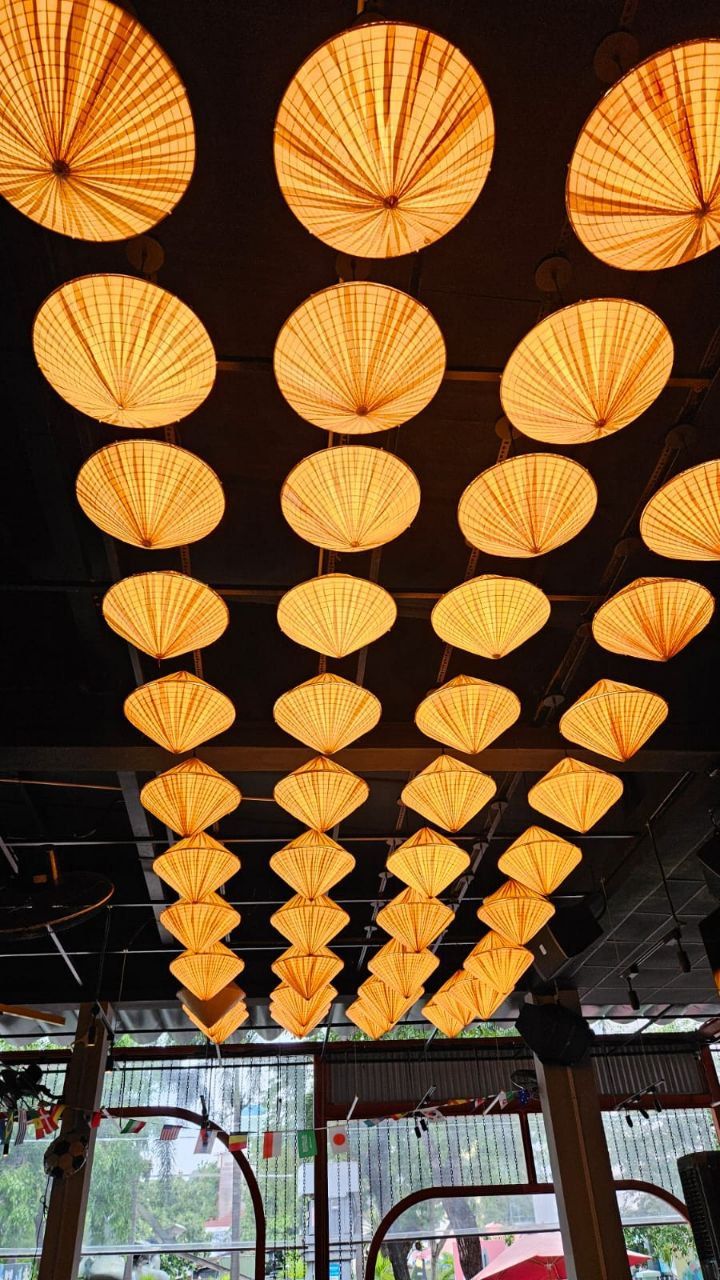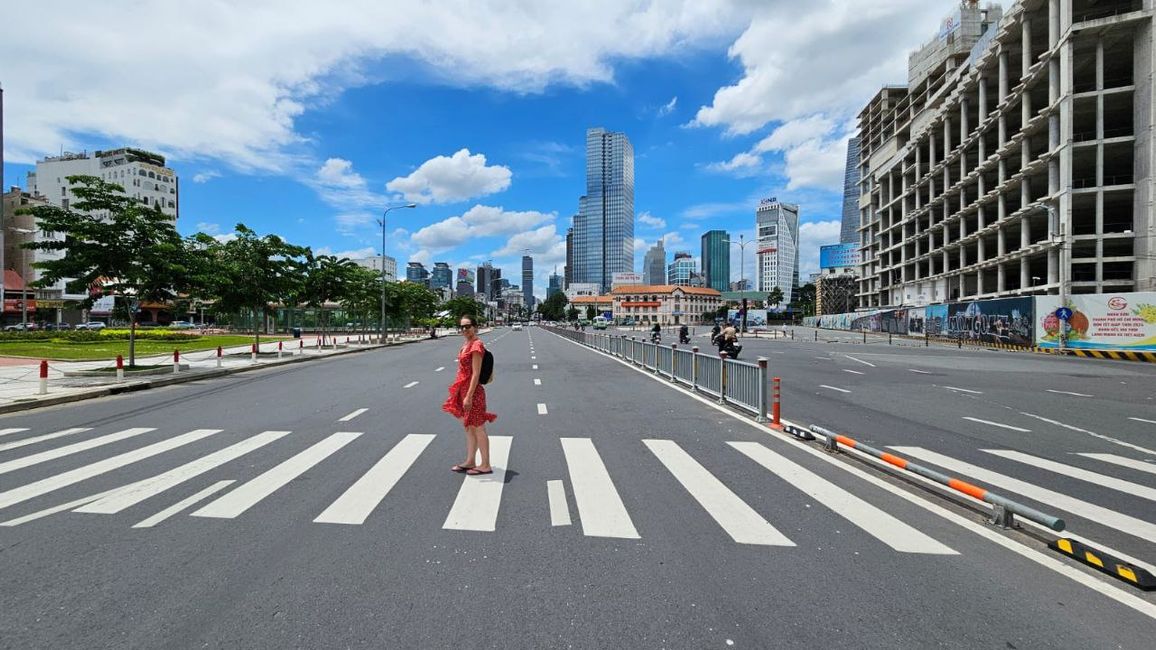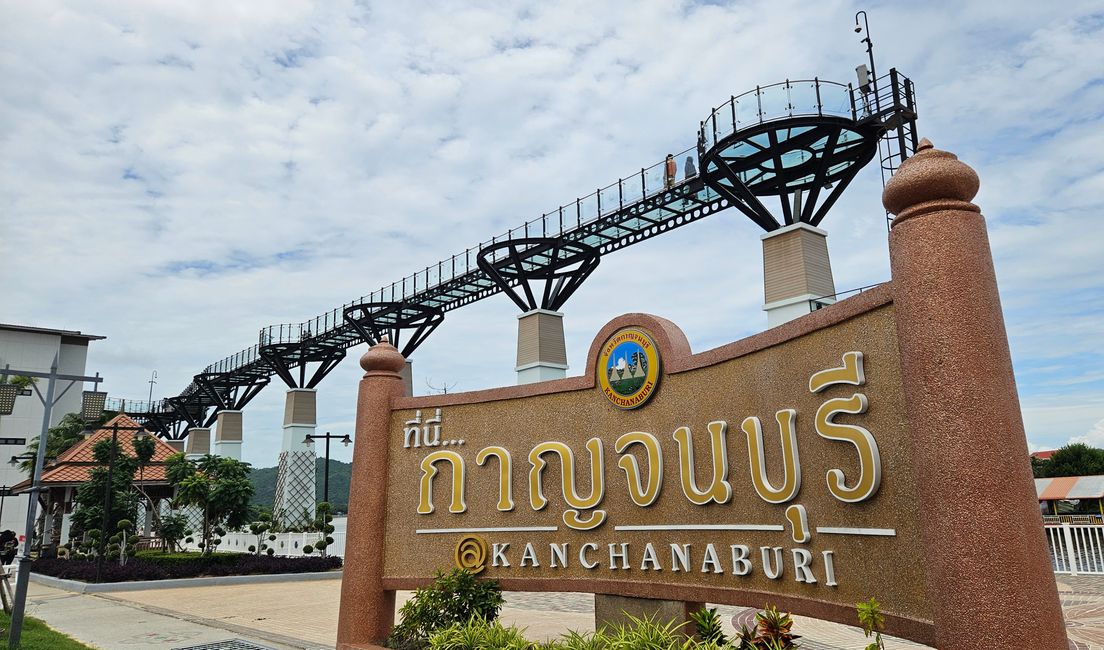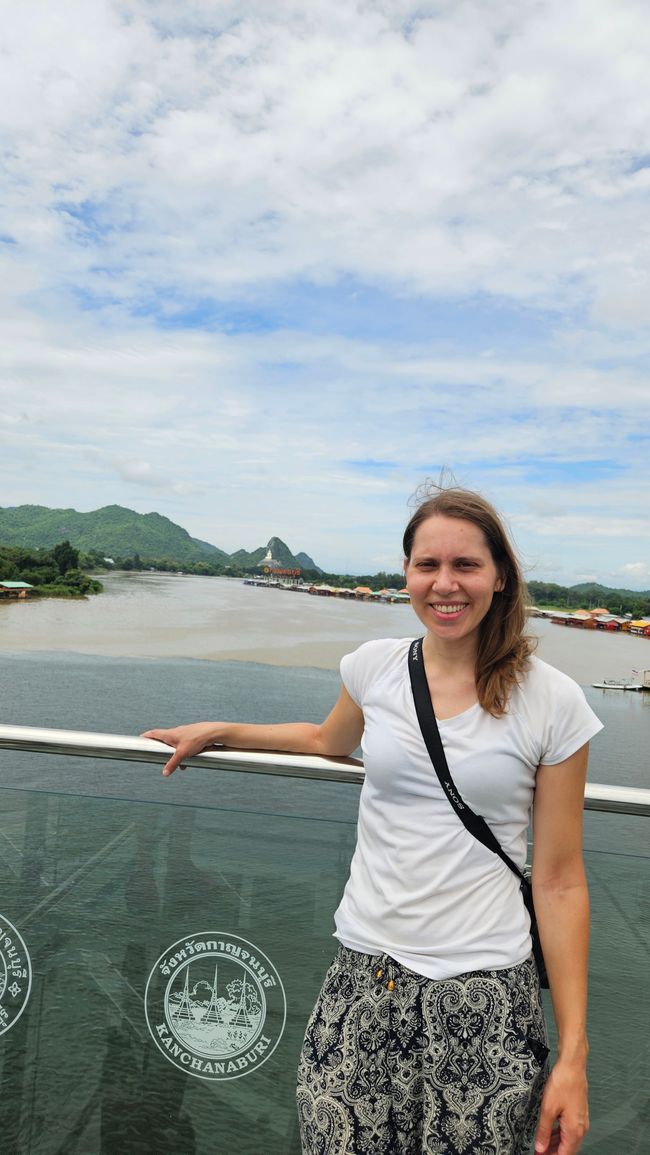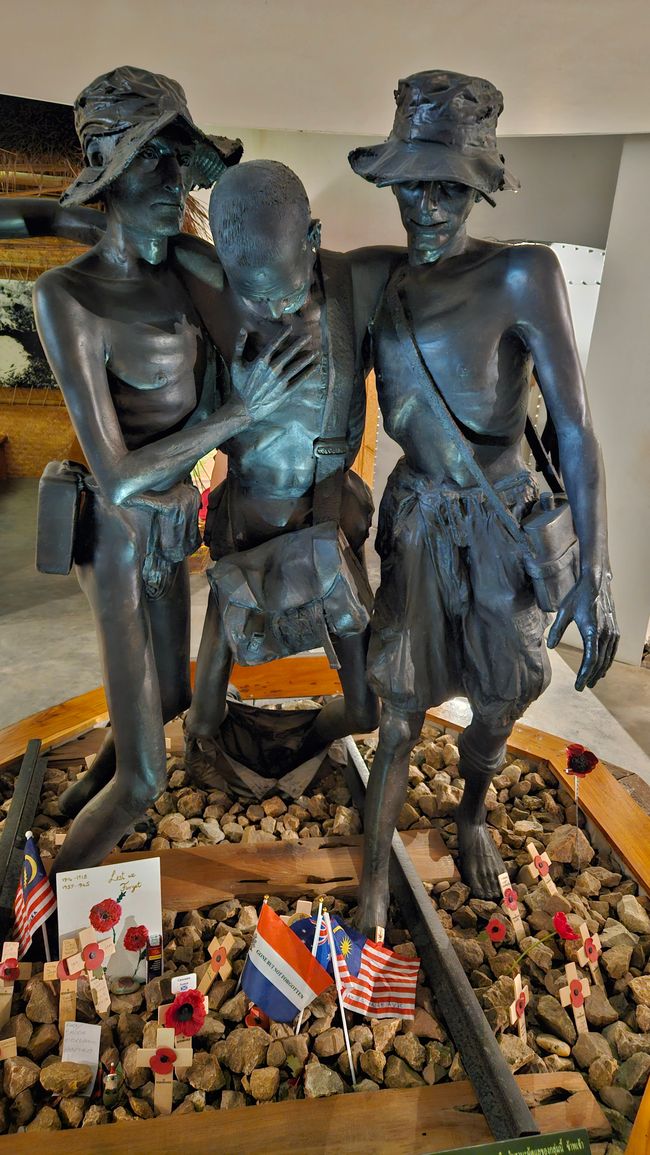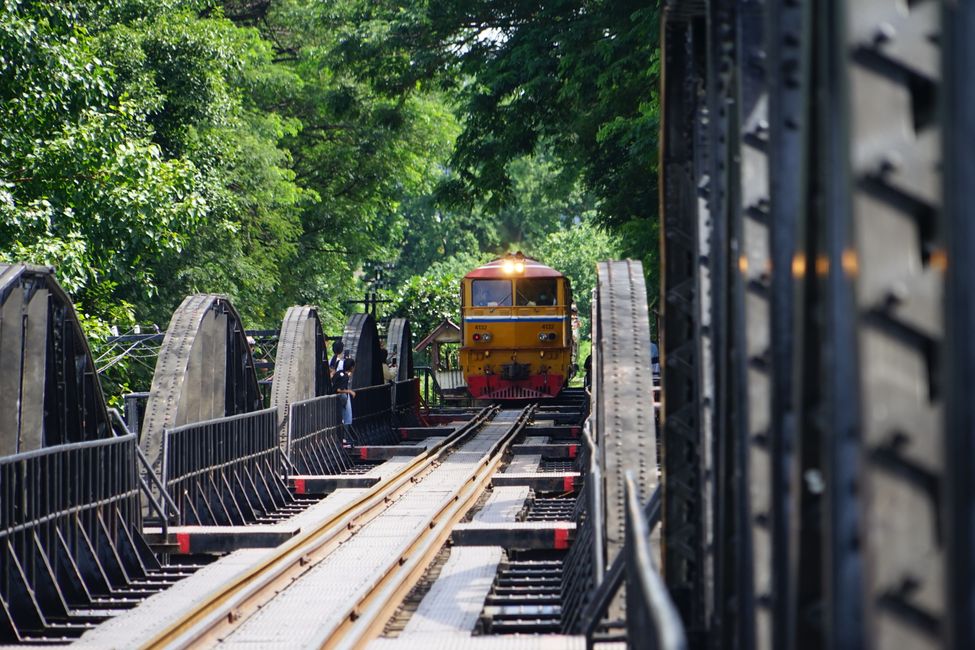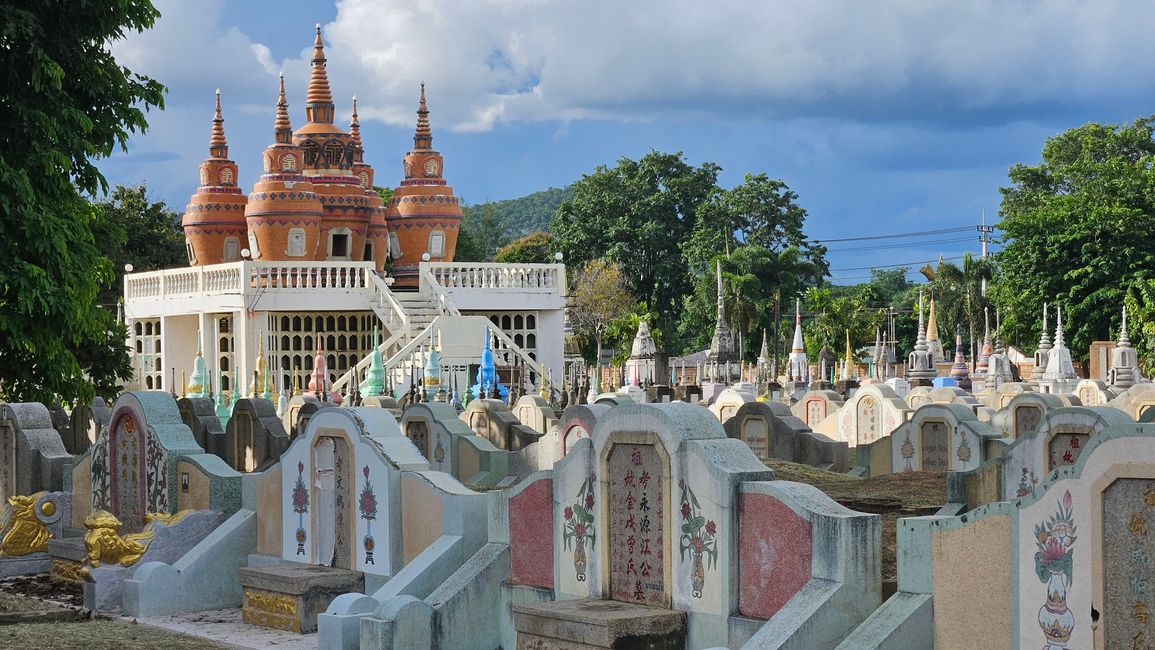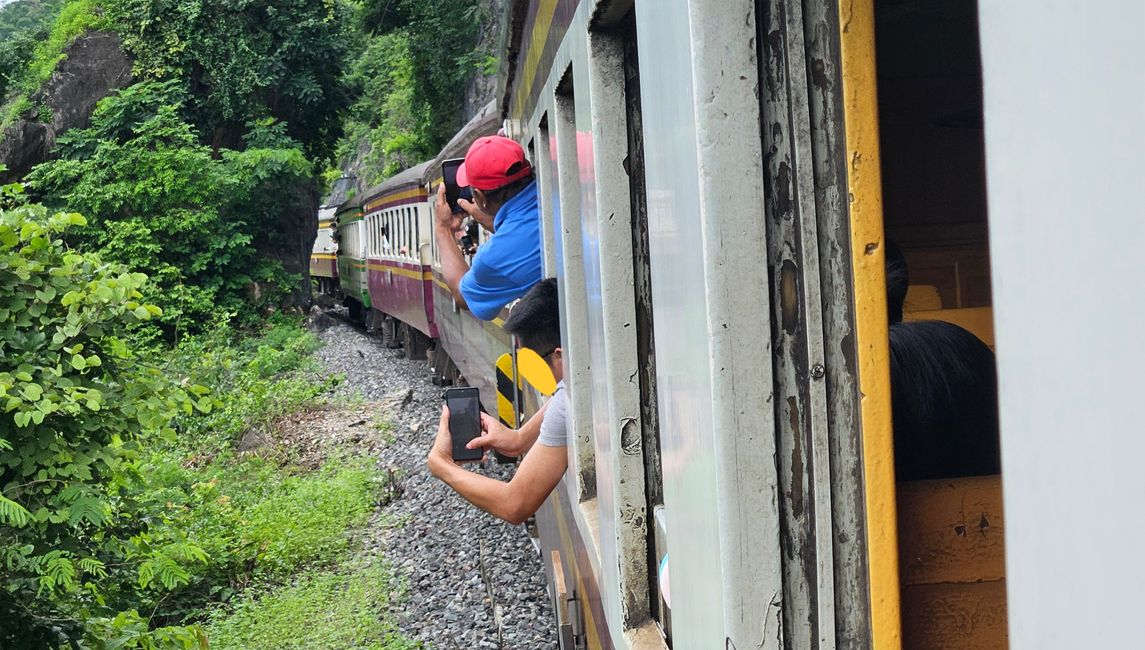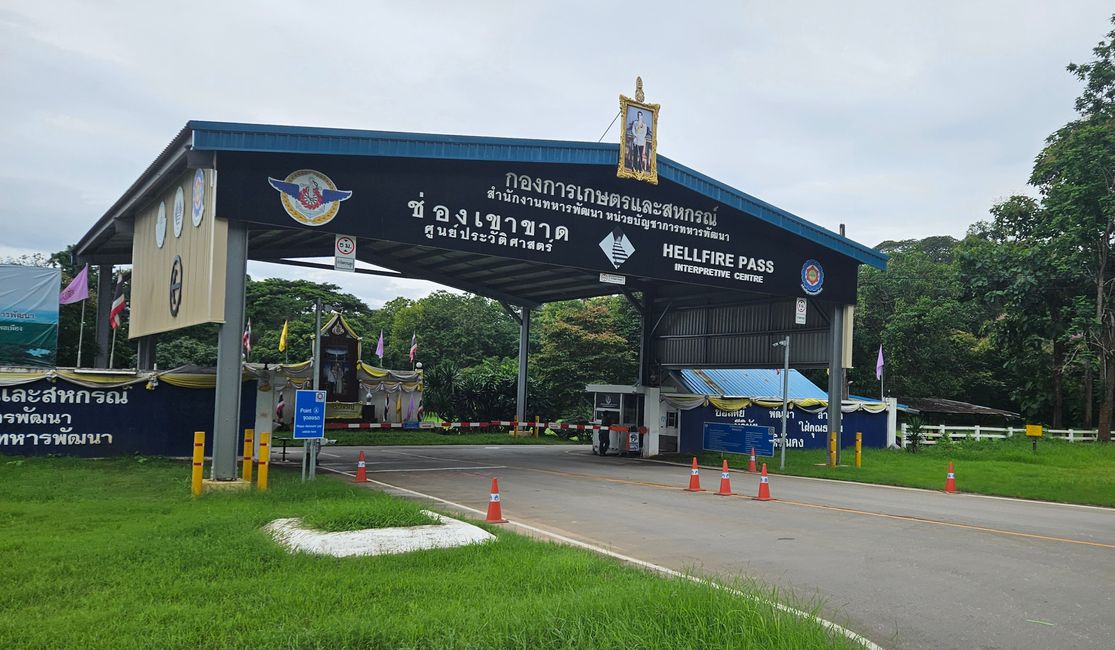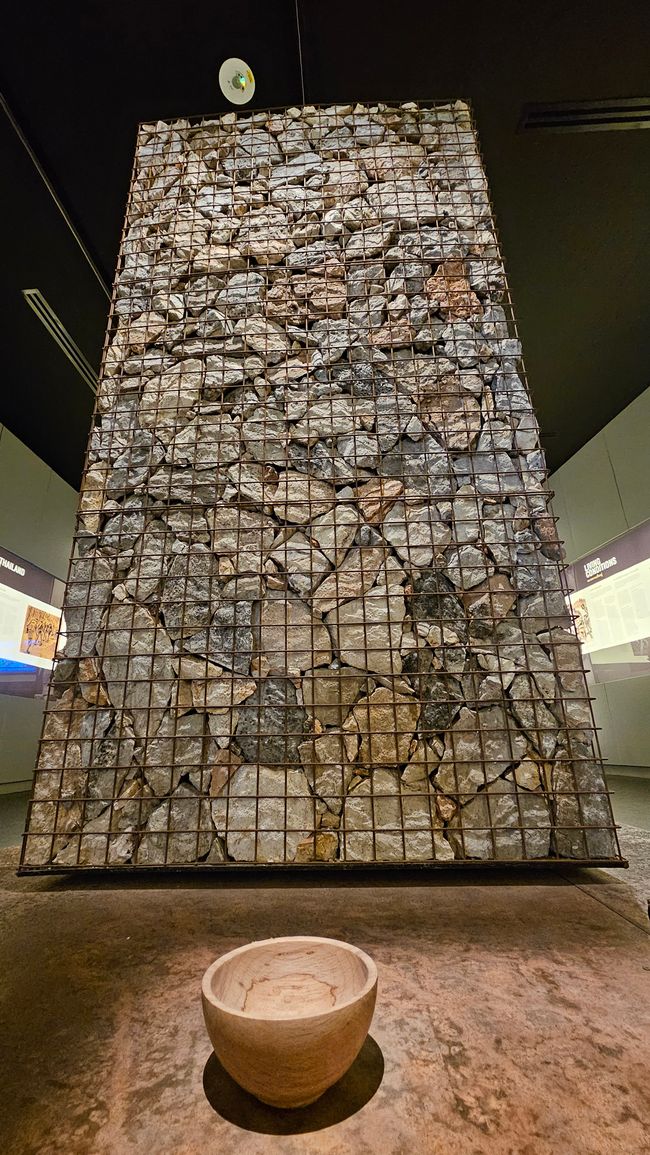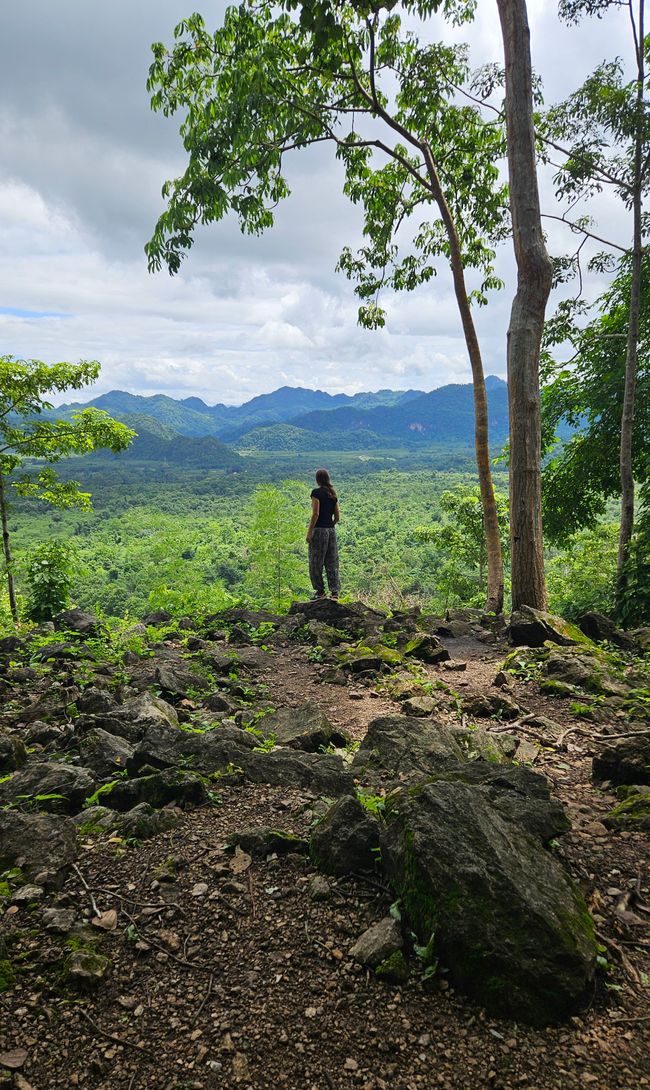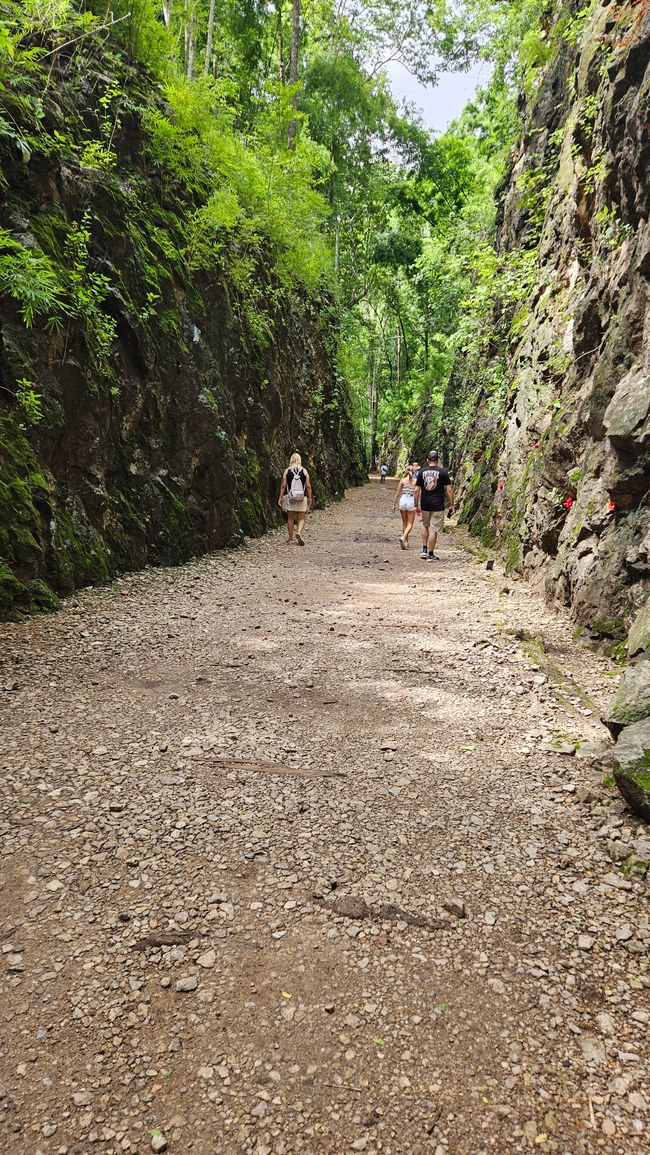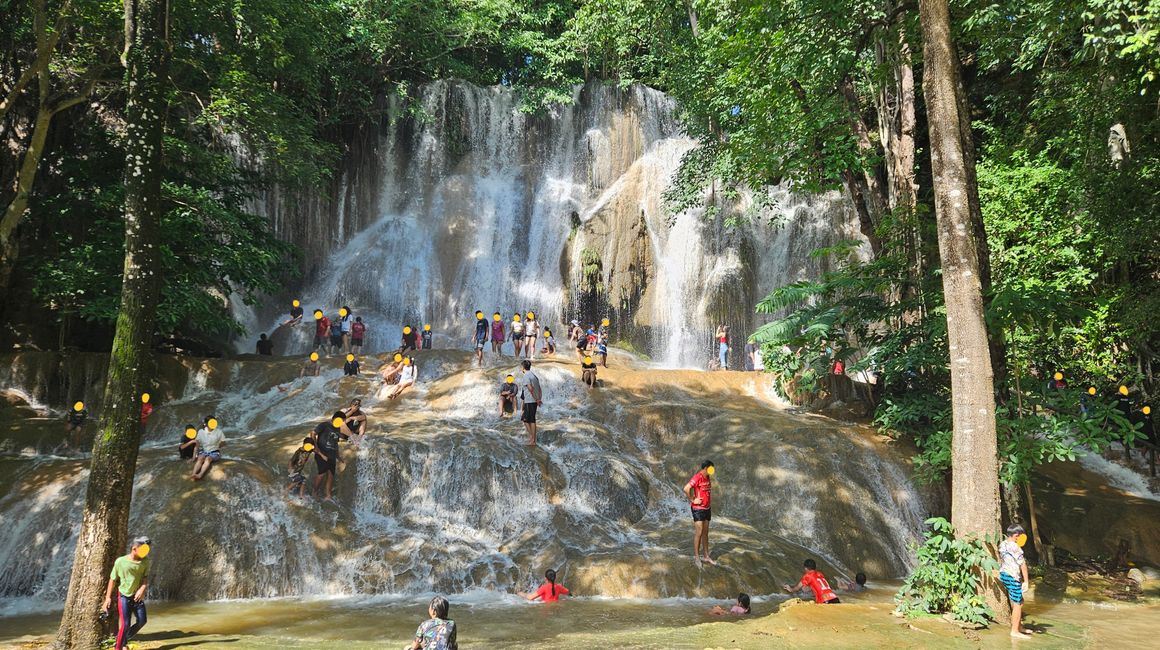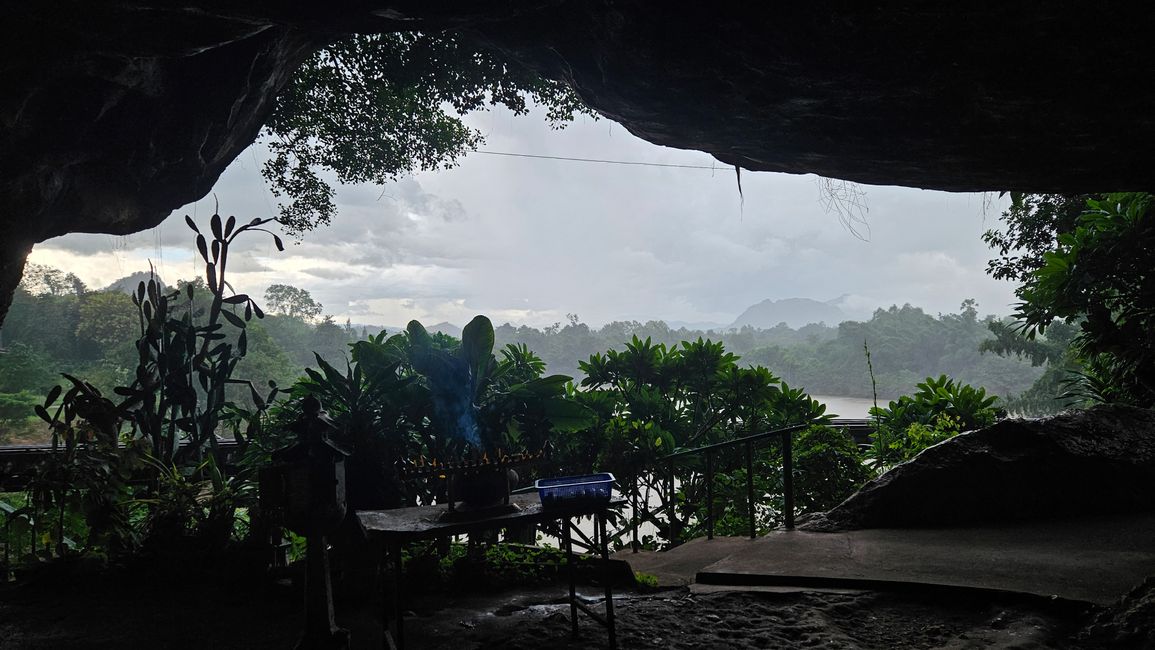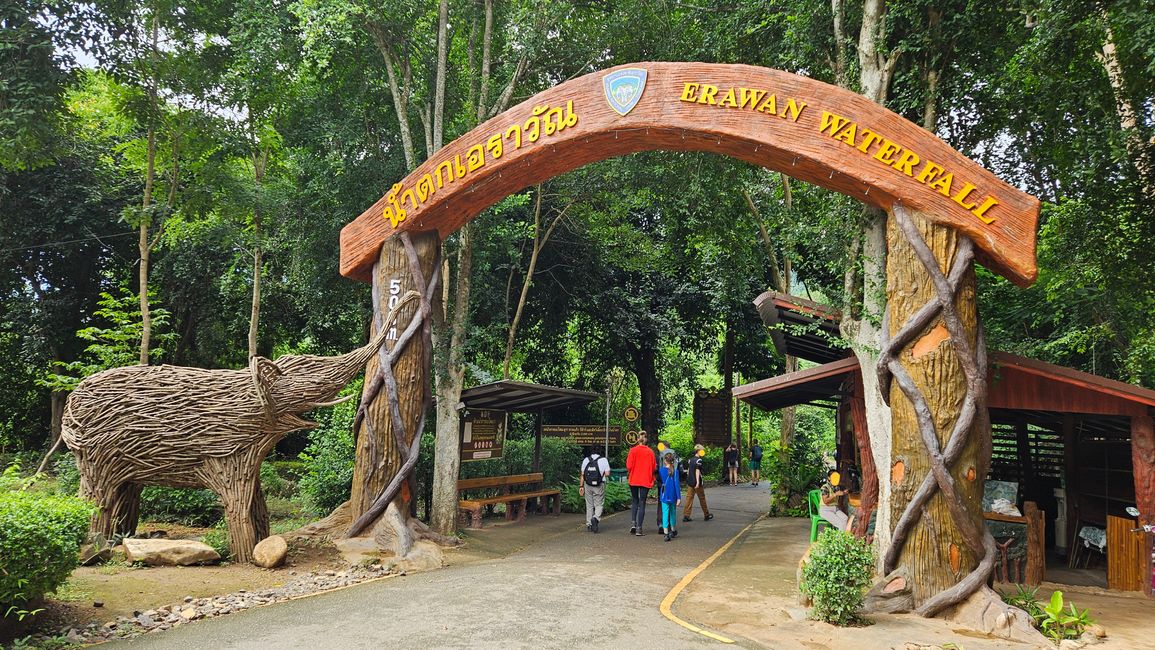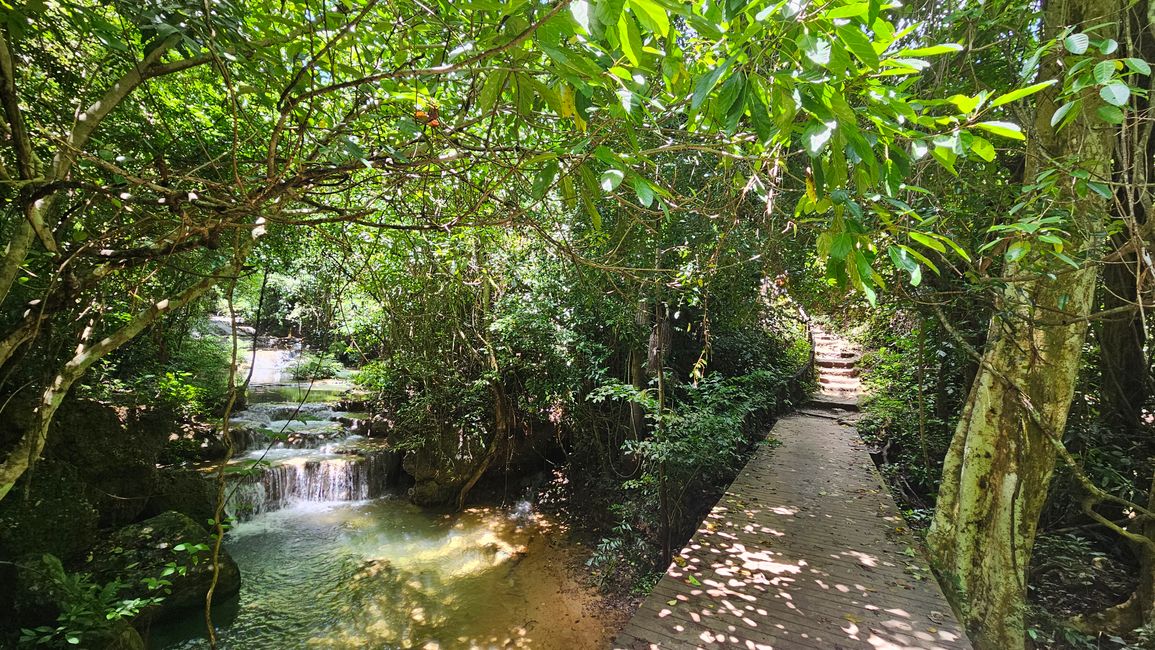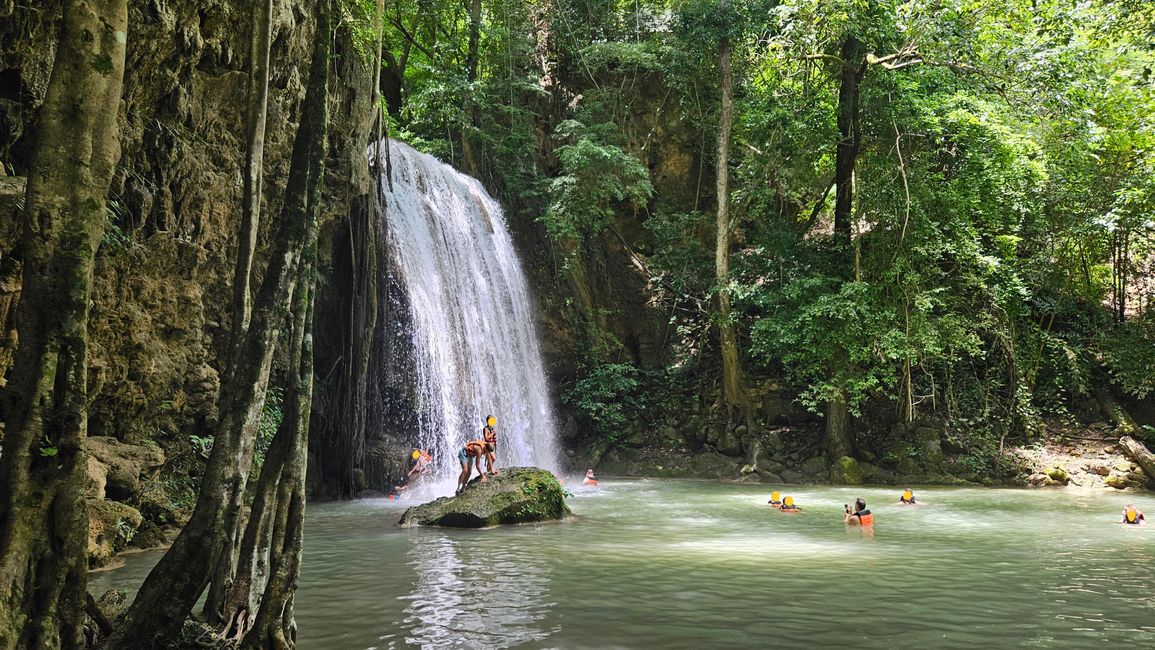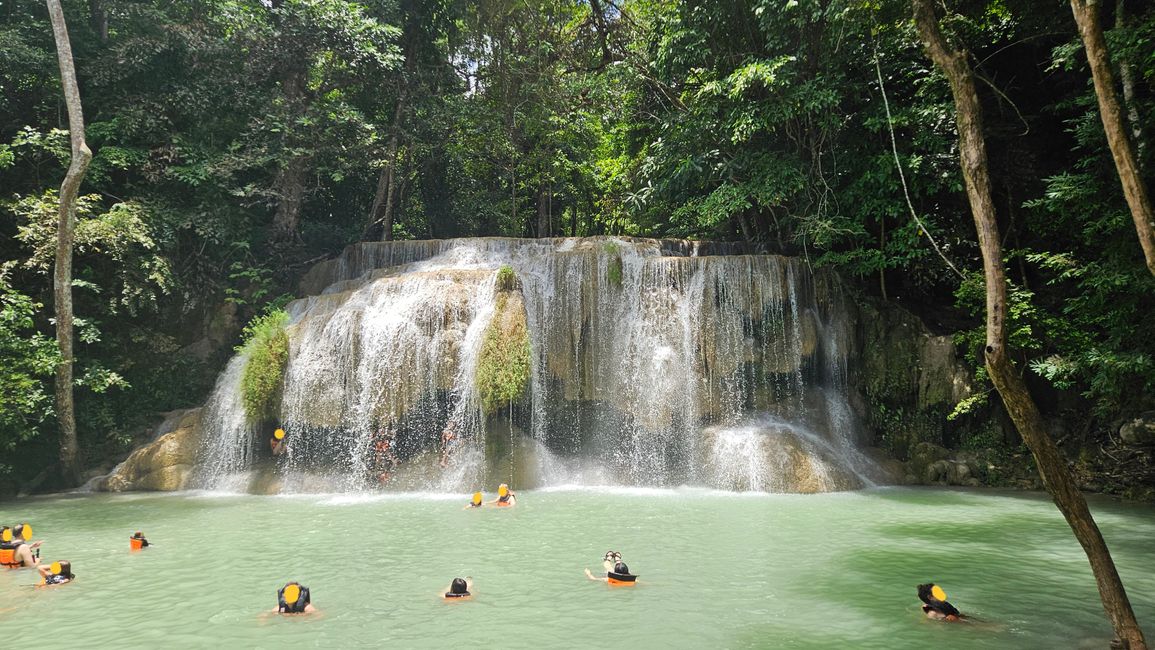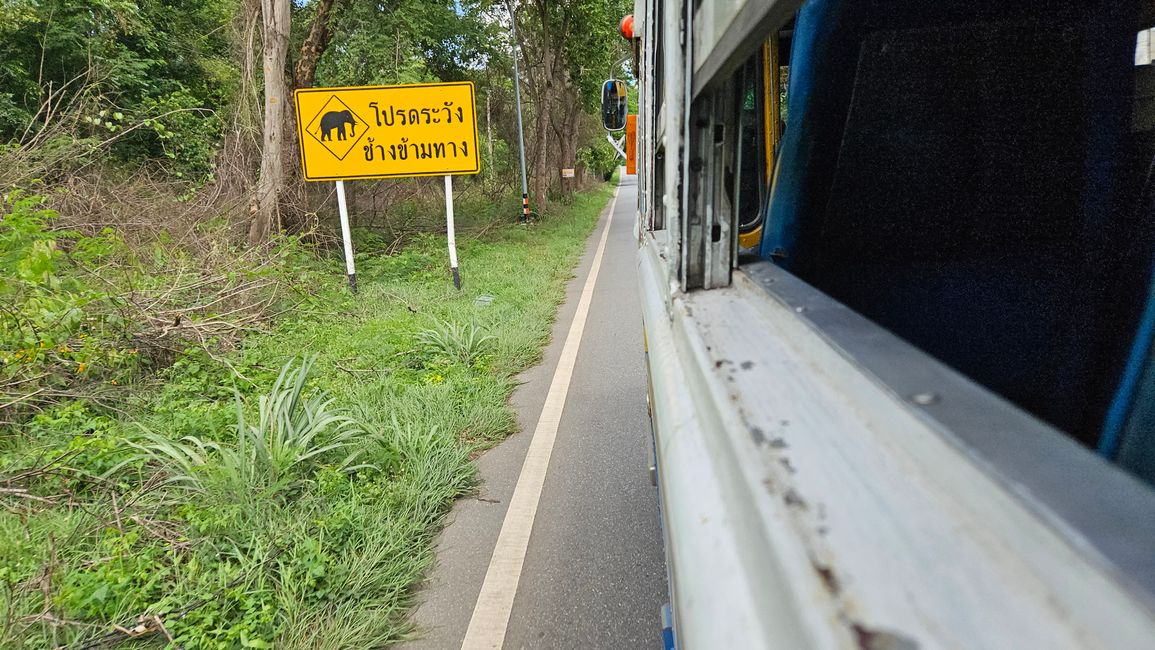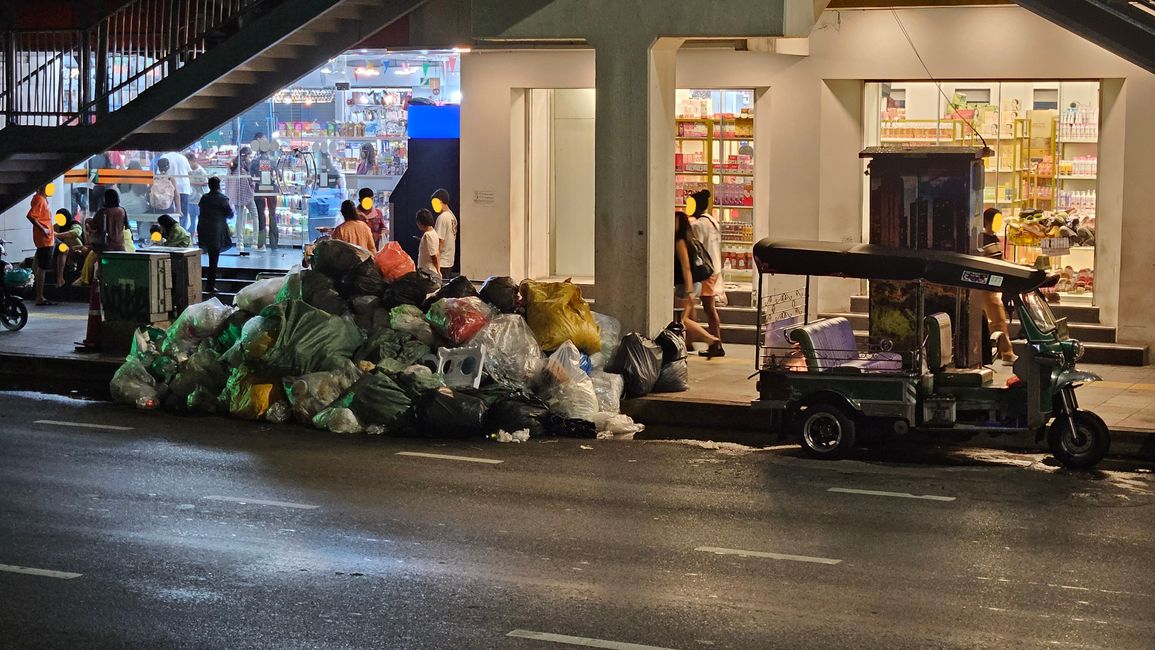Kanchanaburi
Ippubblikat: 23.08.2024
Abbona għan-Newsletter
Aside from the flight from Chiang Rai to Bangkok, getting to Kanchanaburi was a real adventure, as I decided to continue from Bangkok by minivan. So, I first took the Skytrain for 5 stops at the airport, then for another 10 stops on the subway, and finally walked 'a little distance.' The bus station is marked on Google Maps, so I thought it would be no problem. I was wrong. The minivans don’t pick up where the buses do; instead, they have their own little station under one of the many overpasses near the bus station. So I asked around until I could no longer miss the right overpass and also knew I had to go to Building D. Beaming with joy, I opened the door to the air-conditioned Building D and was instantly shouted at by five women at once with ‘Kanchanaburi! KANCHANABURI!’ because, of course, each wanted me to buy the ticket from her. I chose the friendliest seller; she was happy but immediately grimaced when I handed her a 1,000-baht note for the 120-baht ticket. However, she sold me the ticket anyway, and four hours later, I finally arrived at my destination.
The dominant theme in Kanchanaburi is the 415 km long so-called Death Railway, which connected Thailand and Myanmar from 1943 to 1945. During World War II, the Imperial Japanese Army had the route built by prisoners of war and forced laborers under inhumane conditions. Estimates indicate that between 40,000 and 90,000 people died during this, hence the name Death Railway. Today, 131 km are still operated by the State Railway of Thailand; the rest has been abandoned and most of the tracks have been removed.
On the first day, I rode my bike through the city and visited the Death Railway and Research Center, the River Kwai Bridge, and the cemeteries. The River Kwai Bridge is just one of a total of 688 bridges that had to be built for the Death Railway, but it is probably the best-known due to the film 'The Bridge on the River Kwai.' Although trains still pass over the 320 m long bridge six times a day today, it can be entered, and one can stand on one of the many emergency platforms as the train approaches. This is, of course, particularly spectacular.
On the second day, I traveled a bit on the Death Railway to Nam Tok and met a guy named Michael from England at the station. Spontaneously, we traveled together to Nam Tok and booked a driver who first took us to Hellfire Pass, then to a waterfall, followed by a cave, and finally back to Kanchanaburi.
Hellfire Pass in the Tenasserim Hills was the deepest rock cutting needed for the Death Railway, measuring 75 m in length and 25 m in depth. In addition, there was isolation, a lack of proper tools, and a working shift of 18 hours per day. The sight of the emaciated workers working by torchlight must have reminded onlookers from afar of a scene from hell - which led to the name Hellfire Pass.
On my last day, I took a trip to the Erawan Waterfall until early afternoon, which has seven tiers that can be ascended over 2 km and 300 meters in elevation. Each tier looks impressively different, and you can swim at each tier. The water is quite cold, and once you are in the water, doctor fish start nibbling on the calluses of your feet. But the cooling is really refreshing! Food is only allowed up to the second tier since there are monkeys on the higher tiers that could get tempted. And to combat littering, bottles must be registered, and a deposit must be paid so that you take them back down with you. I think these are excellent measures!
Originally, my plan was to travel further west from Kanchanaburi and explore the national parks of Erawan, Sai Yok, and Khao Laem. Unfortunately, there was a deluge every day from 4 PM that lasted several hours and flooded the streets. I could no longer imagine that hiking in the national parks would be enjoyable. Therefore, I temporarily ended my journey in Thailand.
Abbona għan-Newsletter
Tweġiba (1)
Martina
So, nun einfach nochmal ein Test.
Vermutlich muss ich mich anmelden, damit vakantino mich verarbeiten kann. LG m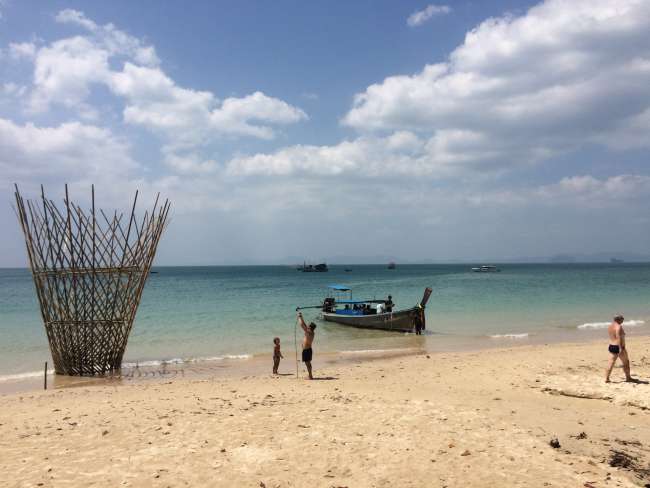
Rapporti tal-ivvjaġġar Tajlandja
